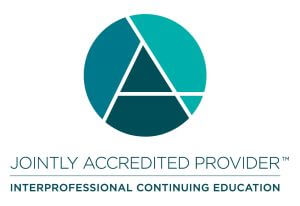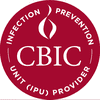
2024 APIC and SHEA Presidents' Partnership
Recorded On: 12/11/2024
- Registration Closed
CE: 0 / IPU: 0
Wednesday, December 11, 2024 @ 1 pm ET
Thomas R. Talbot, III, MD, MPH, FSHEA, SHEA president, and Tania Bubb, PhD, RN, CIC, FAPIC, APIC president
Please join us for our annual Joint APIC/SHEA Presidents’ webinar taking place on Wednesday, December 11, 2024 from 1-2 pm ET. Hear from Thomas R. Talbot, III, MD, MPH, FSHEA, SHEA president, and Tania Bubb, PhD, RN, CIC, FAPIC, APIC president, for the annual presidents’ update on the APIC and SHEA collaborative partnership. APIC and SHEA are dedicated to fostering a strong partnership through ongoing formal dialogue, joint communications, and collaborative initiatives. This webinar is an opportunity to hear directly from the presidents on what SHEA and APIC are doing together and what is planned for 2025.
Continuing Education (CE) Credit:

In support of improving patient care, The Association for Professionals in Infection Control and Epidemiology, Inc. (APIC) is jointly accredited by the Accreditation Council for Continuing Medical Education (ACCME), the Accreditation Council for Pharmacy Education (ACPE), and the American Nurses Credentialing Center (ANCC), to provide continuing education for the healthcare team.
Nursing:
- APIC designates this activity for 0 Nursing Contact Hours
Physicians:
- APIC designates this live course activity for a maximum of 0 PRA Category 1 Credits™
- Physicians should claim only the credits commensurate with the extent of their participation in the activity.

IPUs
- APIC designates this activity for 0 infection prevention unit(s).
- For more information, please see https://www.cbic.org/CBIC/Recertify/Recertification-by-Continuing-Education.htm
Tania Bubb, PhD, RN, CIC, FAPIC
Senior Director, Infection Control
Memorial Sloan Kettering Cancer Center New York, New York
Dr. Tania Bubb is the Senior Director of Infection Prevention & Control at the Memorial Sloan Kettering Cancer Center in New York, NY. She has worked as an Infection Preventionist since 2006 at major academic medical centers with responsibilities spanning the continuum of care. She’s served her local and national APIC board of directors. Prior to serving at the national level, Dr. Bubb chaired the APIC Professional Development Committee, was a member of the American Journal of Infection Control Editorial Review Board, and a member of APIC’s Practice Resources Editorial Panel. Most recently, Dr. Bubb co-chaired APIC’s Health Inequities and Disparities Taskforce and is the 2024 APIC President. She is an experienced speaker and author, having presented at local and national APIC events as well as other conferences, and authored publications related to the field of infection prevention and control.
Dr. Bubb received Bachelor and Master of Science Degrees in Nursing from City University of New York Herbert H. Lehman College and earned her Doctor of Philosophy Degree in Nursing from New York University.
Thomas R Talbot, MD, MPH
Chief Hospital Epidemiologist
Vanderbilt University Medical Center
Thomas R. Talbot, MD, MPH, FSHEA, FIDSA, is a Professor of Medicine in the Division of Infectious Diseases within the Department of Medicine and serves as the Chief Hospital Epidemiologist for Vanderbilt University Medical Center. Dr. Talbot is a recognized expert in the field of healthcare epidemiology and infection prevention and has more than 130 publications in peer-reviewed journals, with original research studies focusing on healthcare personnel vaccination, healthcare-associated infection (HAI) surveillance, and improving hand hygiene as a tool to drive a culture of safety. He has served as a member of the Centers for Disease Control and Prevention's Healthcare Infection Control Practices Advisory Committee (HICPAC) and is currently on the Board of Directors for the Society for Healthcare Epidemiology of America (SHEA), serving as the Vice-President in 2022, President-Elect in 2023, and President in 2024. At VUMC Dr. Talbot is responsible for the development of operational policies and practices to prevent HAIs and the spread of highly concerning pathogens in the healthcare setting, the monitoring and surveillance of HAI process and outcome measures, and the implementation of quality improvement efforts to reduce patient harm from HAIs.